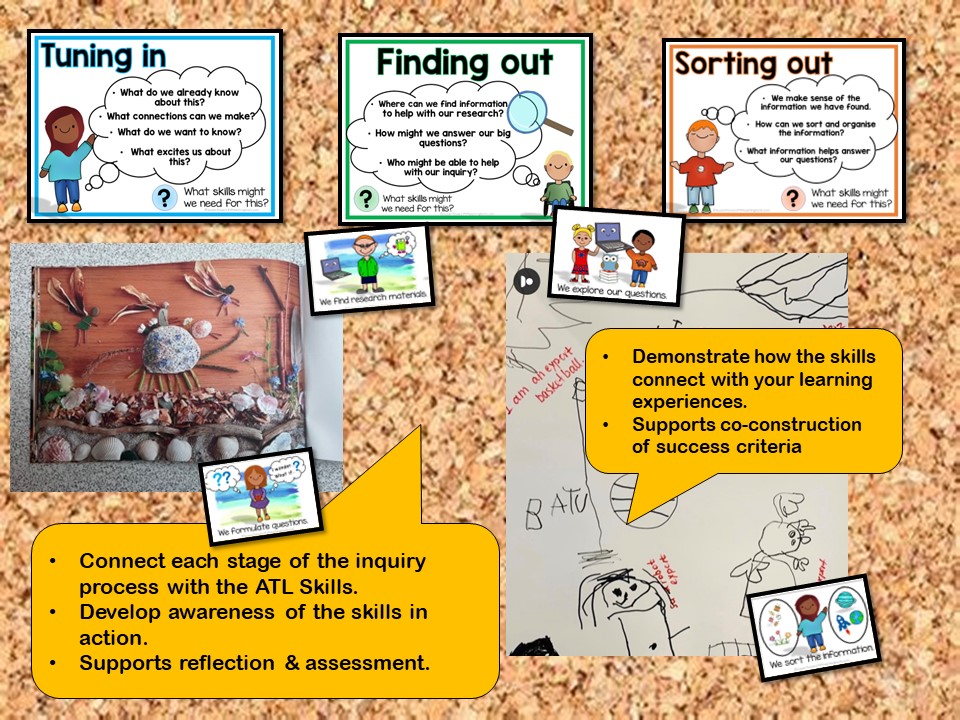Making Sense of IB PYP Learning Progressions: A Teacher's Guide to Supporting Student Growth

Making Sense of IB PYP Learning Progressions: A Teacher's Guide to Supporting Student Growth
Let’s be honest: when you first come across the term learning progressions in the IB PYP, it can feel a bit abstract. I know it did for me and, quite honestly, my first question was, "Well, aren't we already monitoring learning progression? What's the point of this new thing?". If you're anything like most of the amazing PYP teachers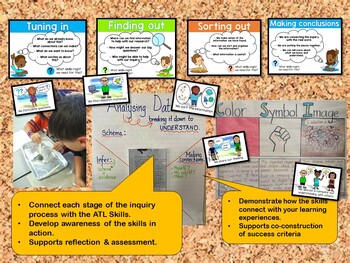 I work with, you're already balancing a lot—unit planning, inquiry scaffolding, ATL integration, and of course, the day-to-day magic of keeping your classroom buzzing with curiosity. Let me give you a simplified opinion, share how it can look in the classroom and hopefully clarify things. Read on. 😊
I work with, you're already balancing a lot—unit planning, inquiry scaffolding, ATL integration, and of course, the day-to-day magic of keeping your classroom buzzing with curiosity. Let me give you a simplified opinion, share how it can look in the classroom and hopefully clarify things. Read on. 😊
So where do learning progressions fit in? Are they another “thing” to do? And is this something "new" to have to learn?
Here’s the good news: they’re not a burden. They are NOT mandated.
They are a tool to support you and your students.
In fact, once you understand them and start using them intentionally, you'll realise that you may well have been working with "learning progressions" with a different title- perhaps content learning objectives, functional language development, ATL Skills objectives? The IB introduced learning progressions to provide clearer guidance on how key skills develop over time, helping teachers support student growth more effectively. These progressions improve consistency, support differentiation, and strengthen formative assessment across the PYP.
Learning progressions CAN become one of the most powerful tools in your PYP toolkit. They’re about clarity, student agency, and truly meeting your learners where they are. They have been introduced to keep the connections between concept-based inquiry and the skills involved in the process of inquiry clear and transparent. They connect directly to the process of inquiry by outlining how your students can build and apply Approaches to Learning skills as they move through different stages of exploring, questioning, and constructing understanding. Let me break it down for you and show you how I use them.
So, What Are Learning Progressions Anyway?
In a nutshell, learning progressions describe the journey of a skill or understanding—from the very beginning stages to more advanced levels. They help you see where your students are, where they’re going, and how to support them along the way.
But here’s the key: they’re not checklists. They’re developmental. That means they aren’t about ticking boxes or racing to the top. They’re about understanding that learning is messy, personal, and often non-linear. And that’s okay. That’s the inquiry way.😉
In the IB PYP, learning progressions are closely tied to our Approaches to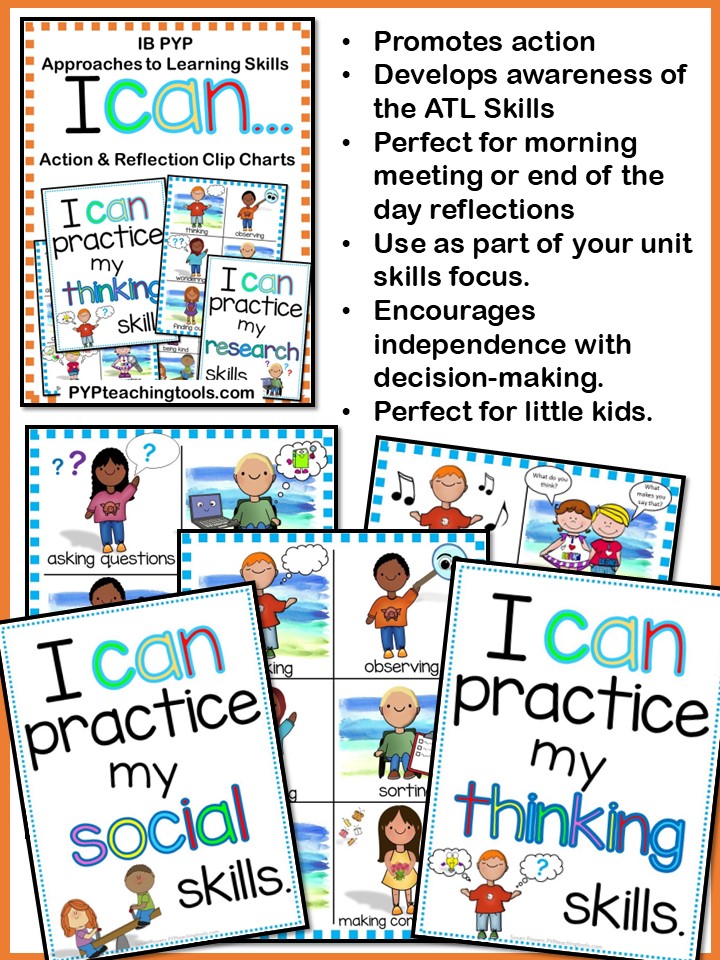 Learning (ATL) skills, conceptual understanding, and assessment for learning. They’re all about giving you and your students a shared language to talk about growth—and to make learning visible. We ALREADY use this functional language in relation to the skills used within the process of inquiry. This is nothing you - the tool will help you with planning and monitoring progress of these actions. Take a look at the I CAN statements within this FREE early years tool. By highlighting the language function of the skills, you are supporting your students' awareness of what these skills LOOK-SOUND-FEEL-ACT like. These are available with the FREE TOOLS LIBRARY for subscribers.
Learning (ATL) skills, conceptual understanding, and assessment for learning. They’re all about giving you and your students a shared language to talk about growth—and to make learning visible. We ALREADY use this functional language in relation to the skills used within the process of inquiry. This is nothing you - the tool will help you with planning and monitoring progress of these actions. Take a look at the I CAN statements within this FREE early years tool. By highlighting the language function of the skills, you are supporting your students' awareness of what these skills LOOK-SOUND-FEEL-ACT like. These are available with the FREE TOOLS LIBRARY for subscribers.
Why Learning Progressions Matter in the PYP
When I first started using clear learning objectives with my students (aka the progressions) with intention, I noticed three big shifts in my classroom:
-
Clarity – I could better identify what support each learner needed next.
-
Ownership – Students began to take more control of their learning and goal-setting.
-
Differentiation – It became much easier to plan meaningful experiences that met a range of needs.
Learning progressions help us live out core elements of the enhanced PYP:
- student agency
- ongoing formative assessment
- transdisciplinary learning.
Whether you're building ATL skills like social skills, collaboration and research skills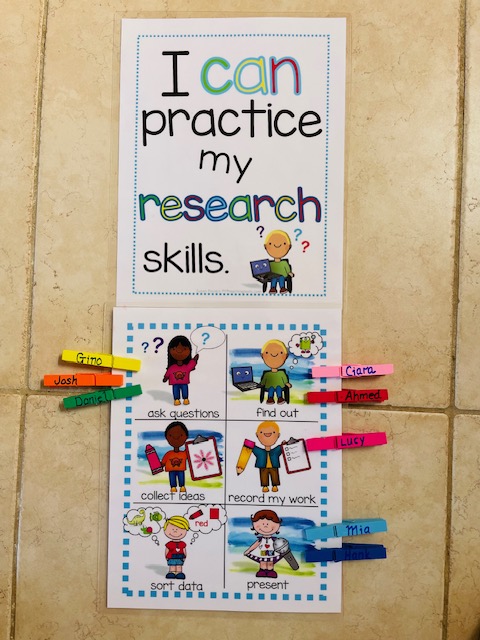 or supporting writing development in your language scope and sequence, progressions can guide the way through the inquiry. Look for the action words or function of the language in question and how that develops across time.
or supporting writing development in your language scope and sequence, progressions can guide the way through the inquiry. Look for the action words or function of the language in question and how that develops across time.
How to Bring Progressions to Life in Your Classroom
Let me share some ways I use learning progressions practically—without overloading myself or my students.
1. Make Them Visual and Accessible
I like to co-create simple, student-friendly posters or anchor charts that break a skill into stages across the learning journey. For example, a self-management skills progression might show how a learner moves from needing reminders to managing tasks independently. How does the skill fit within the inquiry process? How can we make the connections between our learning experiences and the skills within the learning? 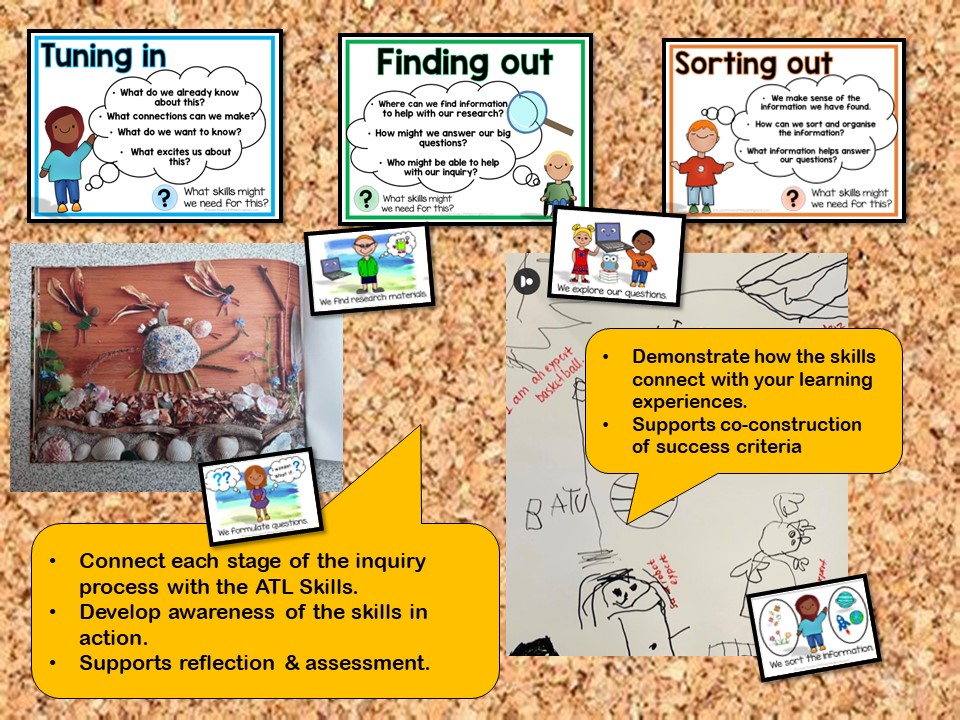
Stick these up on your learning wall or keep them in student folders. Better yet—let your students help you build them using their own words.
I created a set of tools designed to guide my students through this learning process, connecting the ATL Skills with each stage throughout our inquiry. That way we had clear language to use as we co-planned and reflected, we made connections between the learning experience and the skills that we were implicitly working with. There is a set for Grades 3-5 and also a set for lower grades, keeping the functional language appropriate for each level.
If you need more help with understanding the inquiry process and the commonly used cycle, read more here.
2. Use Them in Conferences and Reflections
Learning progressions are gold during student-led conferences or goal-setting sessions. You might ask, “Where do you think you are right now with this skill?” or “What’s your next step?”
I often use sentence stems like:
-
“Right now, I can…”
-
“My next step is to…”
-
“I used to…, but now I…”
This builds metacognition and puts the learner in the driver’s seat. The student led conferences are built largely through sharing and reflecting upon skills-based experiences. Again, the links with the language, the skills in action. The example below is part of a reflection we used for our Student Led Conferences. Read more here. 🤩
3. Plan Tiered Tasks with Progressions in Mind
Instead of one-size-fits-all activities, design learning experiences that match where students are on the progression. If we’re working on communication skills, some students might be practicing active listening, while others are leading group discussions or giving peer feedback. As you can see, this is naturally differentiating learning, reaching ALL learners and supports our flexibility with approaches to teaching. Read more about differentiation strategies here and watch the video.
These ATL Skills charts are my lifeline when planning! I'll share the link here so you can see for yourself how they can support your collaborative planning with both your team and your students. Read more about planning through the ATL Skills in this blog article. 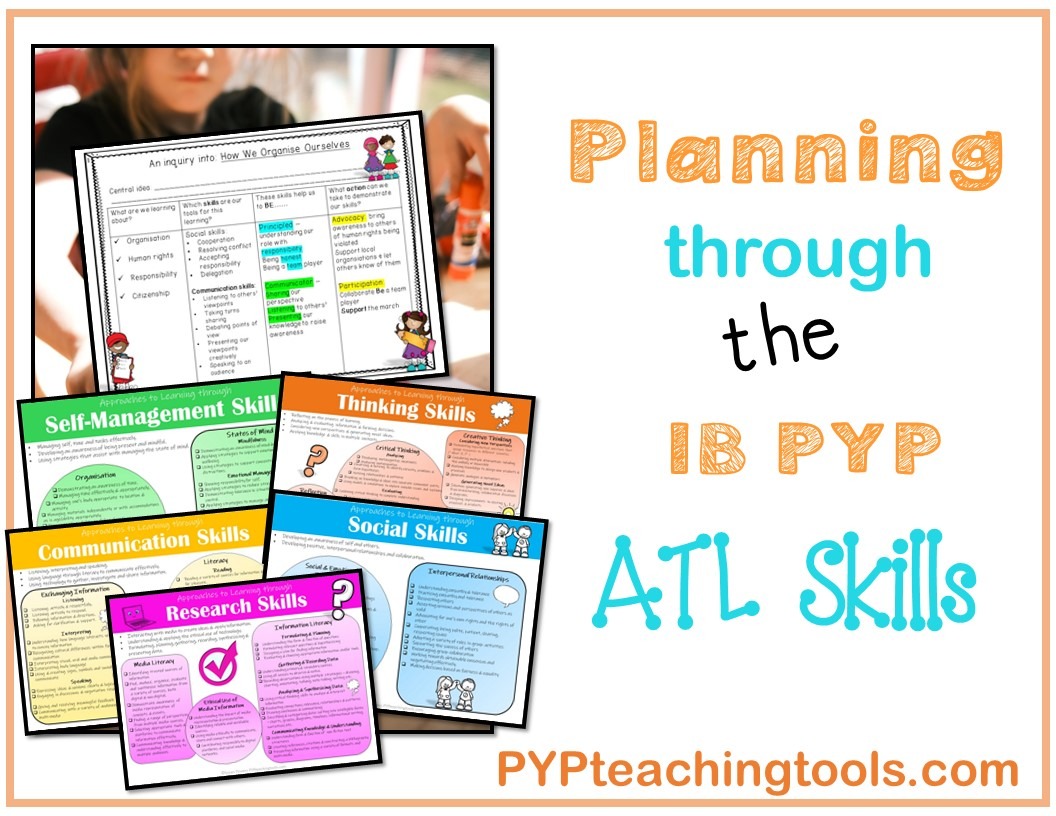
When planning, consider the infinite sub-skills that we can connect with the ATL Skills and what that might look like within the children's ability and age level.
Progressions make it easier to differentiate without having to reinvent the wheel every time.
4. Integrate Them into Portfolios and Reporting
Student portfolios are the perfect home for showing growth over time. I encourage my learners to select work that reflects different points along a progression—“This piece shows where I started; this one shows how I’ve grown.”
And when it comes to report writing? Progressions help me describe learning in a narrative way that’s specific, strengths-based, and aligned with the learner’s journey.
An Example: Self-Management in Action
Here’s a simplified self-management progression to demonstrate:
| Stage | Student Behaviour Look fors |
|---|---|
| Emerging | Needs reminders to start tasks and stay on track |
| Developing | Follows routines with some support |
| Proficient | Plans and manages tasks independently |
| Extending | Adapts plans, reflects on strategies, and supports peers |
With something like this, you can have rich, meaningful conversations with students. You might ask, “What strategies help you move from developing to proficient?” or “How can you support others once you’ve reached the extending stage?”
But What About Time?
I hear this a lot: “I love the idea, but I don’t have time to create all these progressions from scratch!” Totally fair, and this is where the beauty of the IB's tool comes into play. You can access them within the Programme Resource Centre on MyIB. And, for classroom-ready support with your students I’ve created a range of ready-to-use tools that support and develop an awareness of that the ATL skills look, sound, act like across the learning progressions, student reflection tools, and editable templates. They’re designed to be flexible, visually engaging, and easy to integrate into your planning. Take a look at each set below:
Inquiry through the ATL Skills:
Whether you’re working on research skills, social collaboration, or math problem-solving, there’s something there to support you—and to save you time.
Final Thoughts: It's About Growth, Not Perfection
If you take one thing from this post, let it be this: learning progressions aren’t about labeling kids or ticking boxes. They’re about honoring the growth each learner is making and helping them see it too.
You’re already doing so much to support your students holistically. Learning progressions simply help bring that journey into focus—for you and for them.
So give them a try. Start small. Make them visible. And watch how they open up new possibilities for reflection, ownership, and purposeful learning.
Let’s keep doing what we do best—guiding young learners on a path of curiosity, confidence, and growth.
Enjoy!

P.S. IF you're looking for more professional learning WITH the classroom tools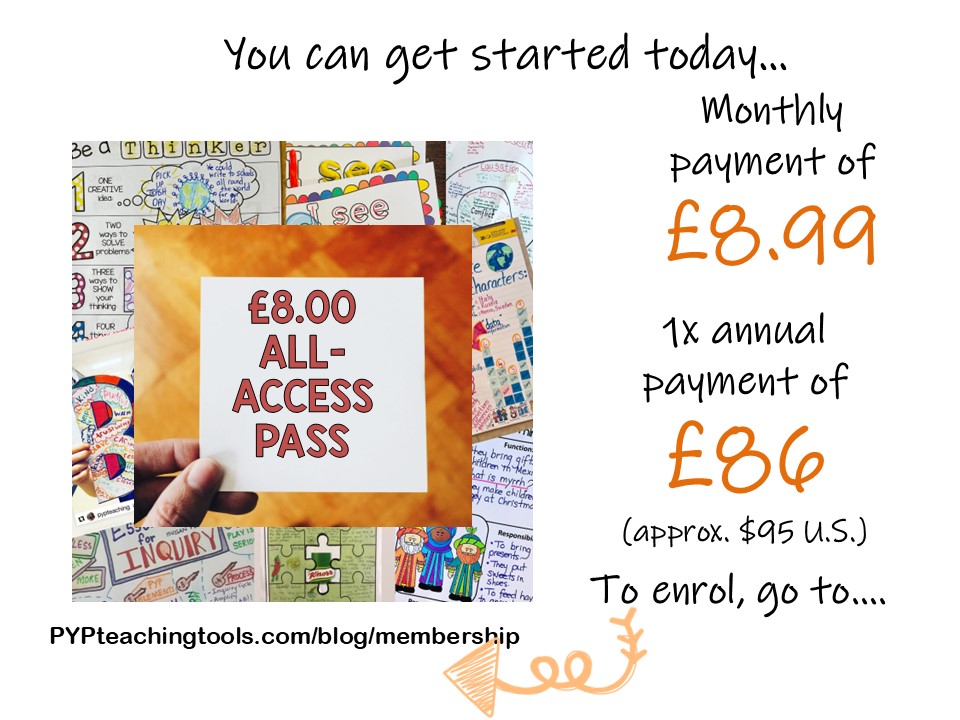 to go with it ( the tools above are delivered to Essentials for Inquiry community members every month 😊) you may be interested in joining us in the monthly members' community. Learn more here.
to go with it ( the tools above are delivered to Essentials for Inquiry community members every month 😊) you may be interested in joining us in the monthly members' community. Learn more here.



